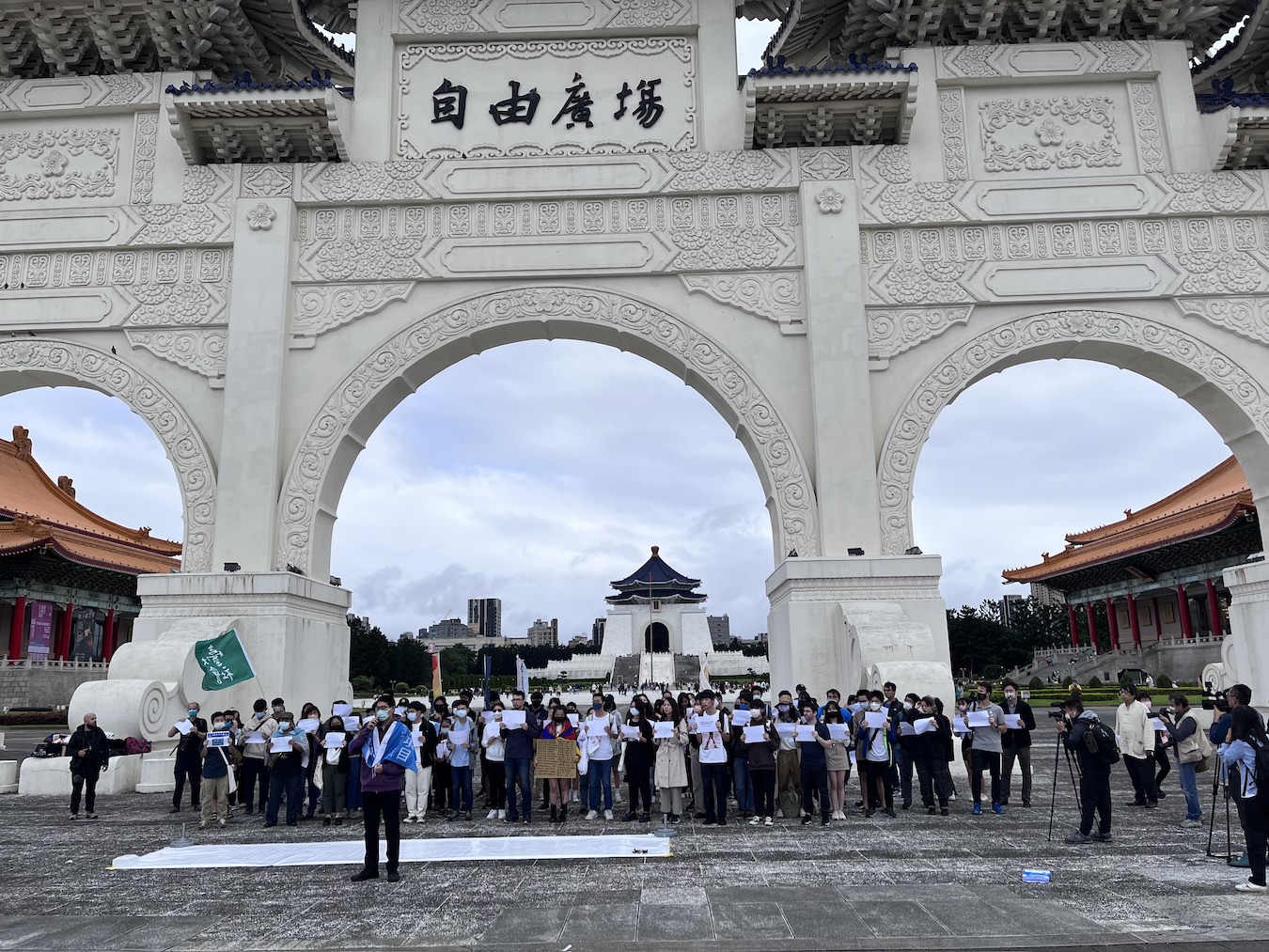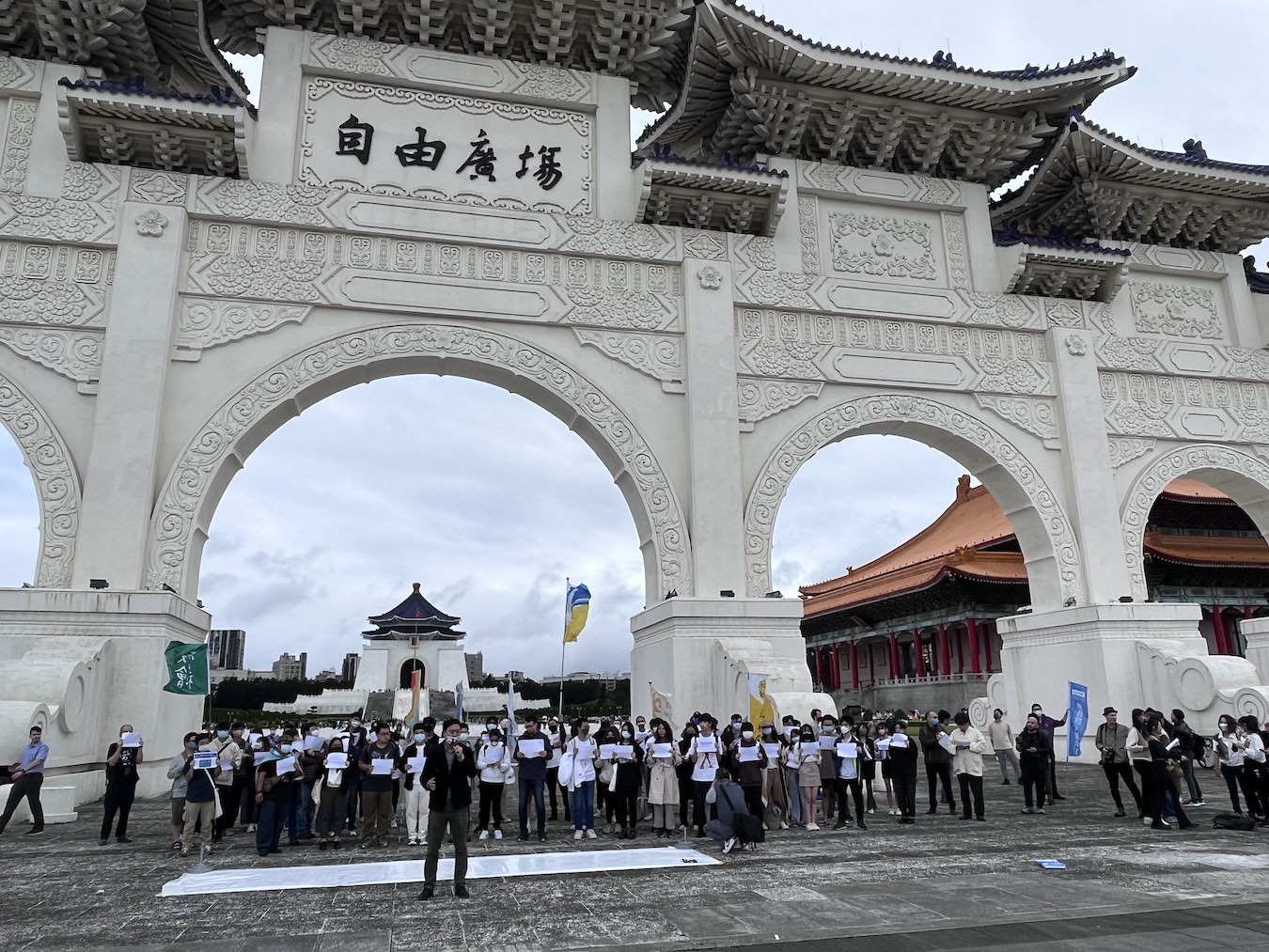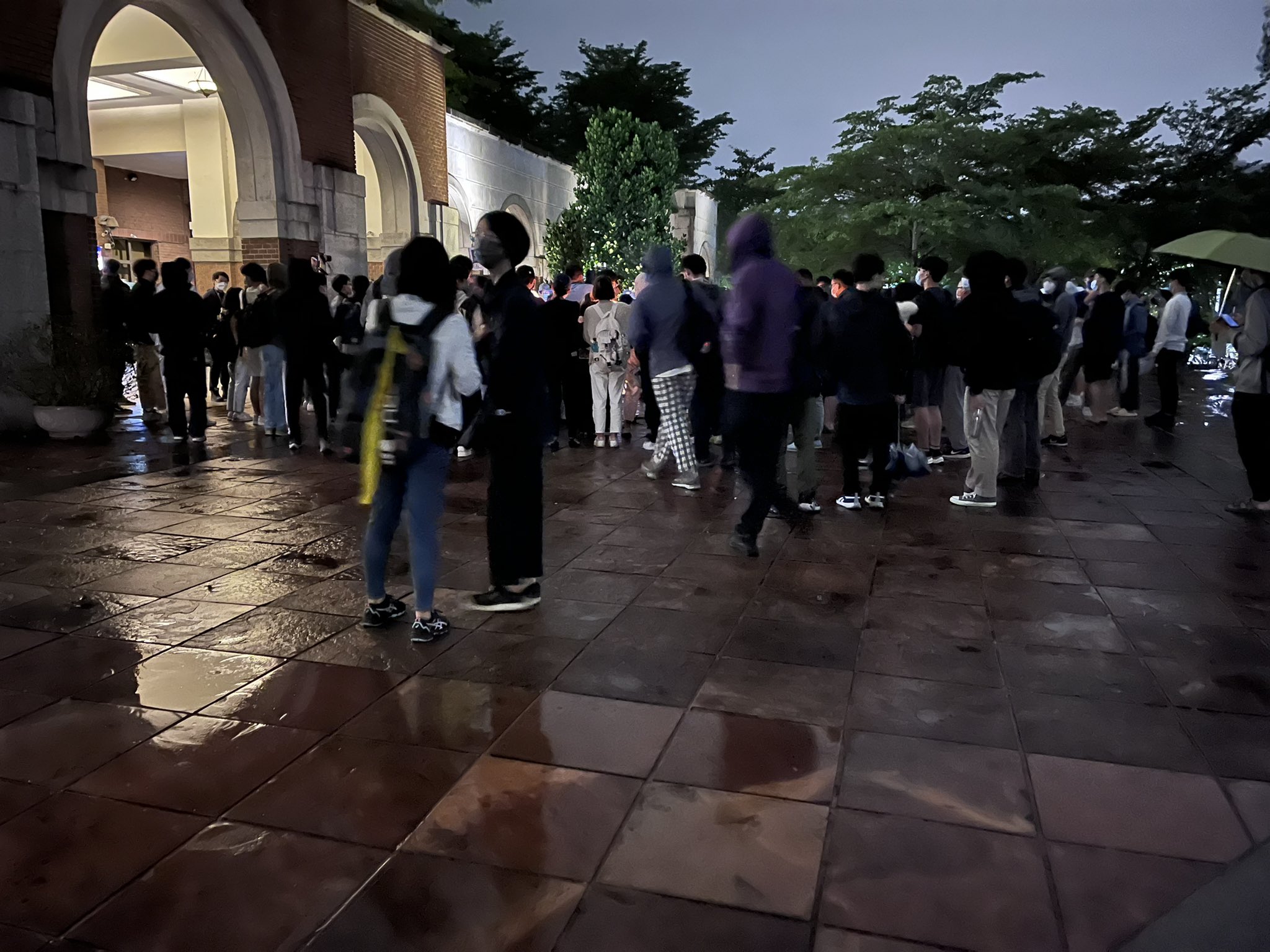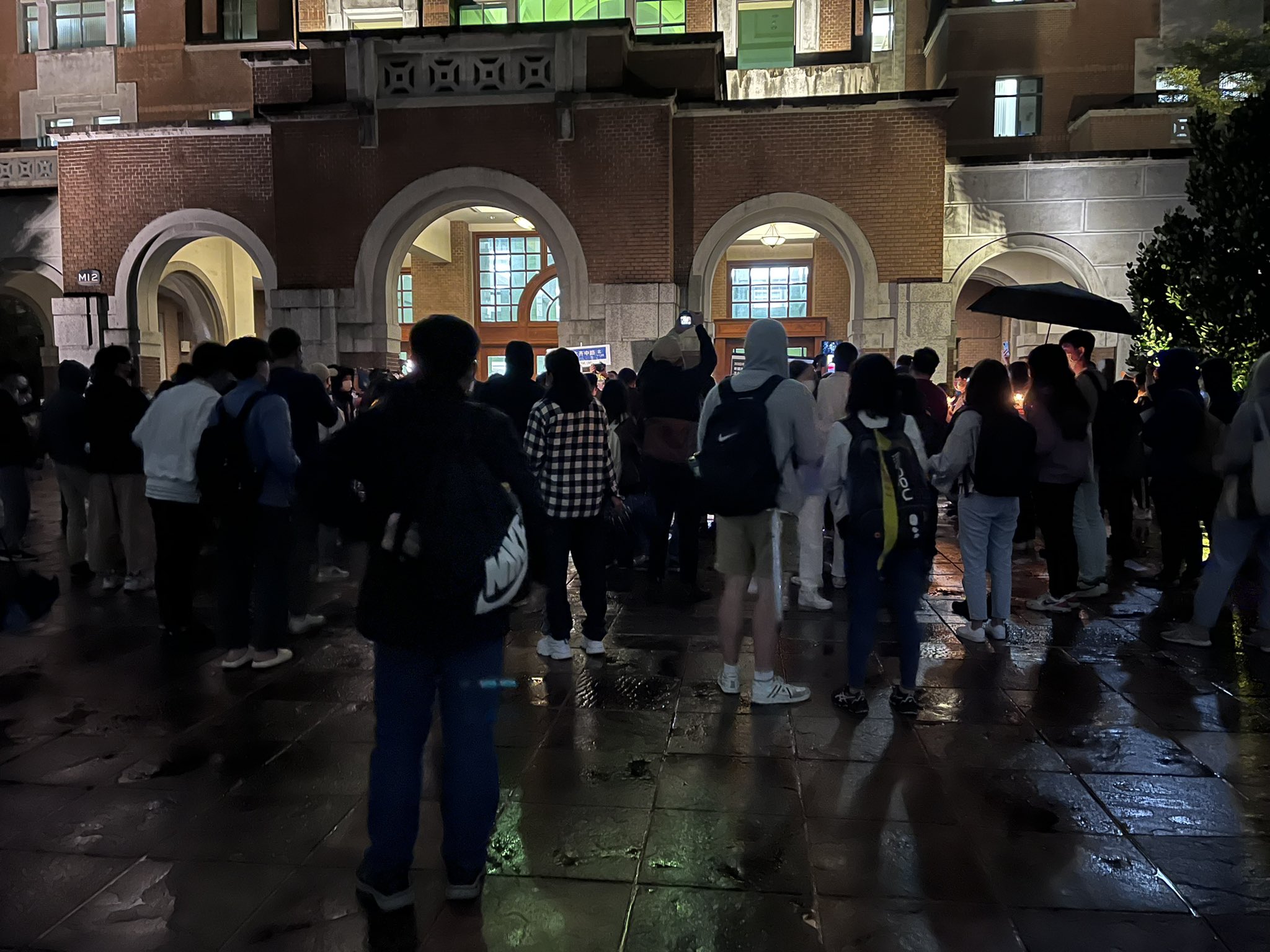by Brian Hioe
語言:
English
Photo Credit: Brian Hioe
A SOLIDARITY RALLY for China’s “A4 Revolution” was held in Liberty Plaza in Taipei this afternoon. This took place on the heels of a week that saw at least four solidarity rallies for protests in China in Taipei, two of which were framed as vigils for the victims of the fire in Urumqi that sparked the protests.
The rally began at 2 PM. Participants assembled underneath the Liberty Plaza arch to hold up white A4 papers, while a large white banner was unfurled under the arch. Those gathered were later asked to write messages on the banner of support for protests in China. Perhaps slightly over 100 were in attendance.
One of the first speakers was Lee Ming-che, the Taiwanese human rights NGO worker who was detained by China for over five years. Lee was imprisoned on charges of seeking to subvert the state, which was thought to be due to sharing the experiences of Taiwan’s democratization with Chinese friends.
 The rally today. Photo credit: Brian Hioe
The rally today. Photo credit: Brian Hioe
Lee spoke of the need to stand in solidarity with Chinese protesters, despite that he rejected the label of “ethnic Chinese”, and suggestions that Taiwan stood in solidarity with Chinese protesters because Taiwanese viewed themselves as part of the Chinese nation. Lee also stated that this sort of solidarity was how and why Taiwanese could come to understand the authoritarianism of the Chinese government and the fate that would await Taiwan if it accepted “One Country, Two Systems” or any other Chinese system of rule.
Another speaker was Lii Wen, the DPP’s candidate for Lienchiang county magistrate. Lii spoke of the outlying islands of Kinmen and Matsu, regarding their proximity to China and attendant influence from China. A third speaker was Tashken Davlet of the Uyghur Human Rights Project, who spoke from his perspective as an Uyghur Taiwanese, reflecting on the experiences of how China has tried to repress Uyghurs internationally. Hong Kong independence flags and Ukrainian flags served as additional shows of solidarity. Otherwise, an open mic period allowed those who wanted to speak to say their comments. The rally ended before 3:30 PM.
 Photo credit: Brian Hioe
Photo credit: Brian Hioe
The rally was the third event at Liberty Plaza this week in solidarity with the protests. The first event, a vigil, took place last Sunday. This occurred one day after the Taiwanese presidential elections, as a quickly and spontaneously organized demonstration. Another vigil was held on Tuesday, drawing a few dozen.
A third event was a vigil on the campus of National Taiwan University (NTU) on Wednesday. Despite drizzling rain, this drew between one hundred and two hundred attendees. A memorial was set up for victims of the fire and Chinese protest songs played. As with today’s rally, the bulk of the event was an open mic.
 The NTU vigil. Photo credit: Brian Hioe
The NTU vigil. Photo credit: Brian Hioe
A recurring theme between the NTU vigil and today’s rally was the relationship between Taiwan and China. At both events, speakers spoke of how not all protestors in China may necessarily have views positive regarding Taiwan’s sovereignty, but there was still a need to support them. Furthermore, some Taiwanese speakers expressed support for independence.
The NTU vigil stood out for the participation of Chinese students, however. One of the Chinese students in particular emphasized that they believed some Chinese students were supportive of Taiwan’s sovereignty and its democracy, though they could not speak for everyone. Other Chinese speakers discussed the protests as an international movement. The solidarity rally that was held at Columbia University has become a specific point of attention, with quotes from it read at today’s rally, and demonstrations there referred to at the vigil.
 Photo credit: Brian Hioe
Photo credit: Brian Hioe
In recent memory, there have only been solidarity rallies with such frequency regarding Hong Kong and Ukraine, both of which are issues that Taiwan can project its own longstanding concerns regarding China onto.
It is to be seen if other solidarity rallies or vigils for the protests take place going forward. Since the outbreak of the protests, the Chinese government has backed down from its adherence to COVID-zero policies, a sign of how the protests won concessions from the party-state. Though speakers reacted against the notion today, as a result, it is a question whether there will continue to be protests that take place in China. Even if some of the protests led to demonstrators calling for the end of the party-state and for Chinese president Xi Jinping to step down, the protests may end if the government does, in fact, back down from COVID-zero.

